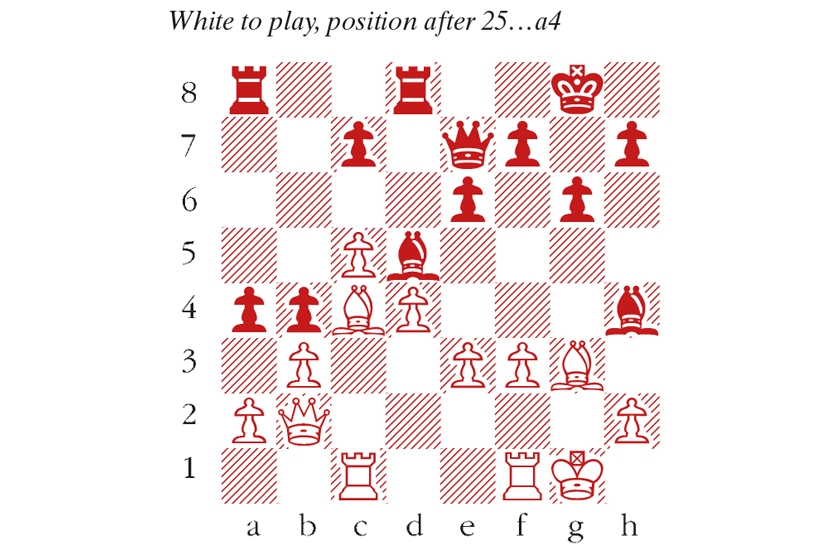It was as baffling to me as quantum entanglement. Every time the Algerian player on the Zoom call shared his screen, my own screen share would stop working. That we were playing in separate matches was beside the point — this was online chess under something like exam conditions, and the software glitch left me briefly in breach of the rules. For 20 years, I have treated online chess as a delightful form of escapism, where wine is welcome, clothes are optional, and my queen can be freely sacrificed in the pursuit of glory. So it was a strange experience, representing England in the Online Olympiad last month. Suddenly there were cameras and protocols and responsibility. All this feels normal in the tournament hall, but not when seated in front of my laptop.
Closing that laptop lid before a competitive over-the-board game often becomes a significant moment, like closing the textbook before an exam. Studying a prospective opponent is a necessarily neurotic activity, to which the closed lid says, ‘Enough — let’s see what fate has in store!’ Such familiar routines don’t work when the laptop itself is the battleground. Little wonder, perhaps, that a recent study from the IZA (Institute of Labor Economics) found that chess players produced measurably inferior moves in an equivalent online setting. The authors speculated that workers performing cognitive tasks at home (in lockdown) may see similar adverse effects. I hope that, in time, we will find new rituals of readiness for the online world.
The Online Olympiad (whose climax, sadly marred by an internet outage, I wrote about last week) had another novel twist. In each match, teams had to field two ‘open’ boards (usually men), two women, an ‘open’ U20 and a girl U20. Although we qualified comfortably in the initial group, we faced tougher opposition in the next group stage, which included Russia (who went on to win gold) and Armenia. The high point of England’s campaign came in round 7 of 9, when we beat Armenia 3.5-2.5, and qualification into the knockout stage became a real possibility. Armenia’s grandmaster Haik Martirosyan beat Matthew Wadsworth on the U20 board. But the match tipped in our favour when Akshaya Kalaiyalahan fended off a fierce attack from Anna Sargsyan on the girls U20 board, and Jovanka Houska outplayed Armenia’s top female player in the game shown below. Heartbreak came in the next round, when a promising match against Romania turned into a loss, and our chances were all but gone.
Danielian’s 17 f3 creates a strong central pawn front, at the cost of a weakened kingside. Houska skilfully restrains the pawns, and the moves 23…Bh4, 24…Bd5 and 25…a4 cohere around a long-term plan. The bishops on c4 and g3 help to glue White’s position together, and exchanging them creates targets for the pair of rooks that enter along the a-file. Once that happens, White’s king is in desperate trouble.
Elina Danielian–Jovanka Houska
Fide Online Olympiad, August 2020
1 d4 d5 2 c4 e6 3 Nc3 Nf6 4 Nf3 Be7 5 Bf4 O-O 6 e3 Nbd7 7 c5 Ne4 8 Nxe4 dxe4 9 Ne5 Nxe5 10 Bxe5 Bf6 11 Bg3 Re8 12 Bc4 Bd7 13 Qc2 Bc6 14 O-O a5 15 Rad1 Qd7 16 b3 g6 17 f3 exf3 18 gxf3 b6 19 Be2 Red8 20 Rc1 b5 21 Rcd1 Qe7 22 Qc3 b4 23 Qb2 Bh4 24 Bc4 Bd5 25 Rc1 a4 (see diagram) 26 Qf2 Bxg3 27 Qxg3 axb3 28 axb3 Ra3 29 Rf2 Bxc4 30 Rxc4 Rxb3 31 Qf4 Ra8 32 Kg2 Rb1 33 e4 Raa1 34 Kh3 Kg7 35 c6 f6 36 Rc5 h5 37 e5 f5 38 Rg2 Rg1 39 Rb5 g5 40 Qe3 g4+ 41 fxg4 hxg4+ 42 Kg3 Rgf1 43 Rf2 Rg1+ 44 Rg2 Ra3 45 Qxa3 Rxg2+ 46 Kxg2 bxa3 47 Ra5 Qb4 48 Ra7 Qb2+ 49 Kg3 a2 White resigns






Comments